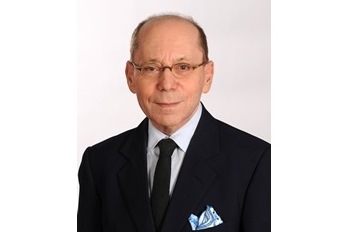I am a Doctor On TV, But am I Playing the Part of Your Doctor? -- Mark A. Fischer

Mark A. Fischer is a partner at Duane Morris LLP.
Real and fictional doctors have been staples of television for decades. Viewers can tune in and listen to remedies offered by “The Doctors,” “Dr. Drew on Call” and “The Dr. Oz Show” among many other real and fictional healthcare providers.
On April 28, 2012, famed cardiothoracic surgeon and television health guru Dr. Mehmet Oz broadcast an episode of his show in which he offered a simple, homespun remedy for viewers whose sleep suffers due to cold feet. Dr. Oz suggested that those afflicted with this condition use “Knapsack Heated Rice Footsies.” What are Knapsack Heated Rice Footsies you might ask? The audience was told by Dr. Oz to place some uncooked rice in their socks, microwave them and wear the socks for 20 minutes. This is exactly what Dr. Oz viewer Frank Dietl did.
Unfortunately for the 76-year-old Dietl, in addition to chilly feet he also suffered from diabetes-induced neuropathy. This condition meant that he could not feel the hot rice as it was afflicting his feet with third degree burns. Mr. Dietl filed suit, claiming that Dr. Oz, the show, its studio and production companies were negligent in not including a disclaimer for viewers with neuropathy or other conditions that might affect their ability to feel heat. Mr. Dietl maintained that he trusted Dr. Oz as he would his own physician and that had there been a warning for viewers regarding heat sensitivity, he would not have used the remedy.
Judge Suliann Scarpulla of the Supreme Court of the State of New York found in favor of Dr. Oz, holding that “America’s Doctor” was not negligent for Mr. Dietl’s injuries, because he owed no physician’s duty of care to his television audience. In her opinion, Judge Scarpulla focused on the requirement that a doctor-patient relationship exist between the parties in order for a duty of care to arise, and reasoned that with such a large viewership Dr. Oz could not have created this necessary relationship with any one audience member.
As more media companies turn to specific consumer tailored content, increasingly delivered through interactive platforms with demographic and end-user specific data, perhaps courts may someday find that a special relationship does exist. As these new forms of media incorporate personalized information into the advice they offer, conceivably they may expose themselves to the risk that they will not have the protection afforded Dr. Oz. Further, there is a strong First Amendment value in encouraging free speech without incurring liability for readers or viewers who follow what they learn without getting specifically tailored advice. Knowledge, smartly used, is power.
From time to time courts have found liability for “negligent publication” in cases varying from a missing mountaintop on an aeronautical map to a negligently prepared school science experiment. But, in general, without a special relationship like that between a doctor and patient or lawyer and client, there is no guarantee that TV or Internet-sourced information will apply to you. There is no shortage of celebrity endorsed self-improvement products, weight-loss aids, plastic surgery substitutes and other ideas and systems to look prettier, handsomer and more attractive. The Internet and bookstores are brimming with such products. It’s up to consumers to sort, filter and double-check the tsunami of information. Further, under First Amendment principles generally such advice may be inaccurate without necessarily resulting in liability (putting aside the substantial body of trade law and food and drug law for a moment). Here, though, both the law and common sense seem to be in synch. Consult your own doctor to make sure the TV doctor’s advice, no matter now well-intentioned or accurate it may be in general, applies to you.
Mark A. Fischer is a partner at Duane Morris LLP. His law practice is focused on solving problems and making deals for innovative companies, institutions and individuals. Mr. Fischer’s clients are typically in the creative industries such as new media, social networking, music, interactive entertainment, information technology, software, television, publishing and toys. You can read his professional biography here . He may be contacted at: mafischer@duanemorris.com .
Check us out on Facebook at MediaBizBloggers.com
Follow our Twitter updates at @MediaBizBlogger
The opinions and points of view expressed in this commentary are exclusively the views of the author and do not necessarily represent the views of MediaBizBloggers.com management or associated bloggers. MediaBizBloggers is an open thought leadership platform and readers may share their comments and opinions in response to all commentaries.


